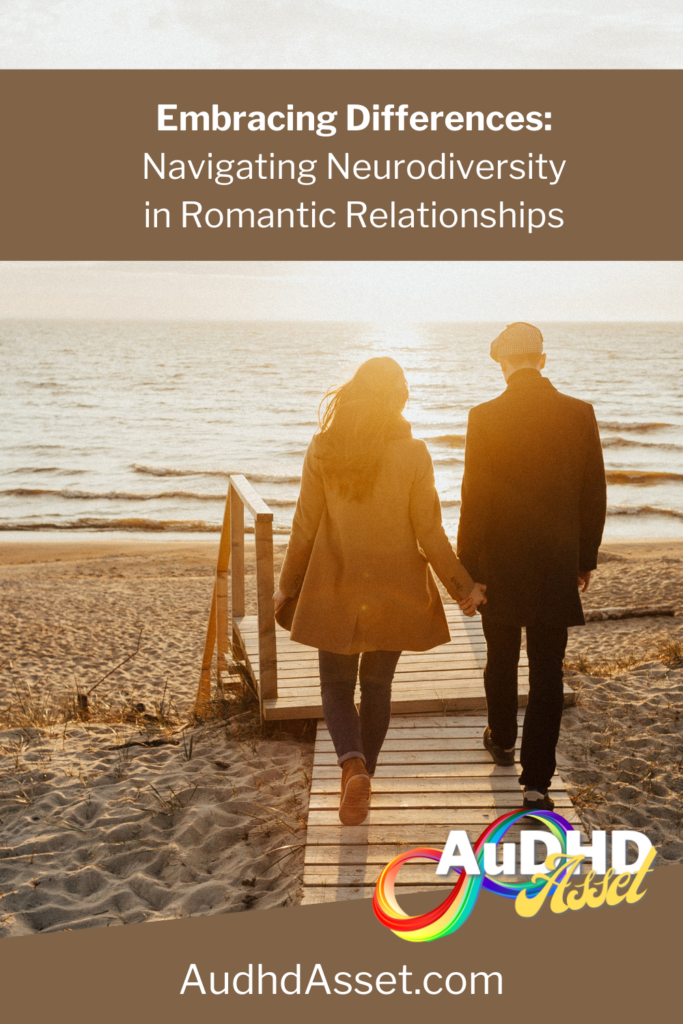Neurodiversity is a concept that recognizes and celebrates the natural variations of neurological differences among individuals. It emphasizes that neurological conditions such as autism, ADHD, and others, are simply part of the natural diversity of the human brain. Rather than viewing these differences as disorders, neurodiversity promotes acceptance and understanding of diverse cognitive styles and functioning.
Social Challenges for Neurodivergent Individuals
Neurodivergent individuals can have many unique challenges that happen when navigating social situations. The social ‘norms’ and social cues that are ingrained within society are very different from the way most neurodivergent individuals go about socializing. That’s not to say that we do not have social skills, we do, they’re just different, and often clashing, to the social skills of “neurotypical” individuals.
Social norms are culturally bound. People from different cultures usually have unique sets of norms. That should not be different from understanding social norms between neurodivergent individuals and those who are not neurodivergent. However, with negative stereotypes and deficit based studies on neurodivergent diagnoses, like Autism and ADHD, the trait is outlined as the individual “lacks social skills” rather than they socialize in different manners.
Challenges for neurodivergent individuals when in social situations with others can include:
- Struggle with verbal and non-verbal communication. Hard to interpret social cues, facial expressions, or body language.
- Overstimulation or discomfort in response to certain sounds, lights, or textures can make social environments overwhelming.
- Fear of judgment and misinterpretation can contribute to social withdrawal.
Establishing and maintaining friendships and romantic relationships can be challenging due to differences in communication styles, interests, or social expectations.
Importance of Understanding and Embracing Neurodiversity in Relationships
Understanding and embracing neurodiversity in relationships is crucial for creating inclusive, supportive, and fulfilling connections. Even if you and your friend or partner both believe you’re neurotypical it’s important to keep an open mind to your differences, communication needs, and accommodate those traits, because everyone thinks differently, even without a neurodivergent diagnosis.
Recognizing and respecting neurodiversity fosters better communication. Understanding each other’s unique communication styles and needs helps in building effective and empathetic communication channels. When partners understand the challenges and strengths associated with neurodivergence, they can offer support, encouragement, and patience.
 Highlighting the Unique Strengths and Challenges
Highlighting the Unique Strengths and Challenges
Neurodivergent individuals bring unique strengths to romantic relationships that can enhance the overall dynamics. These strengths can include:
- Many neurodivergent individuals possess heightened empathy and sensitivity, making them more attuned to their partner’s emotions.
- With intense interests and passions, neurodivergent partners can have a genuine enthusiasm for shared activities and pursuits, bringing excitement and energy to the relationship.
- Being candid and direct is a common trait among neurodivergent individuals. This can contribute to open and honest communication in relationships.
- Once neurodivergent individuals form a connection, they often demonstrate a strong sense of loyalty and commitment.
- Neurodivergent individuals are innovative problem solvers. Approaching challenges in unconventional ways due to their unique perspectives can help bring creativity and innovation to helping you navigate obstacles together.
Breaking Down Misconceptions
There are many misconceptions around autism, adhd, and other neurodivergent diagnoses that lead to misunderstanding with context to relationships. One of the most prevalent misconceptions is that neurodivergent individuals lack empathy. In reality, many are highly empathetic, how they express their emotions and that empathy may just look different.
Expression of emotions for many neurodivergent individuals can look very different then their neurotypical peers. That difference in how their emotions are expressed can lead others to make inaccurate assumptions about how they’re feeling. This can be seen in other common misconceptions around neurodivergent individuals in regards to relationships. For instance, many believe that neurodivergent individuals struggle to form deep emotional connections. Many can form strong and meaningful attachments, but the expression of emotions differs.
Many still believe that some neurodivergent diagnoses, like autism, can lead to complete inability to verbally communicate. While communication styles may vary, many neurodivergent individuals can excel in clear and direct communication, fostering open and honest dialogues. Even individuals that do have an expressive verbal language deficit are most likely able to understand and even communicate using other tools.
Encouraging an Open-Minded Approach to Differences
The need for open-mindedness in a relationship is a must no matter the differences between partners. You can both be neurotypical, both neurodivergent, or one neurotypical and one neurodivergent. Open-mindedness when managing your differences can foster understanding, empathy, and effective communication.
Learn about the specific neurodivergence your partner experiences. Understand their strengths, challenges, and unique perspectives. If you’re neurodivergent, be open with your partner, explain why, how, and be open to explaining your point of view.
 Allow each other to express themselves without interruption, and ask clarifying questions to gain a deeper understanding. Create a safe space where you and your partner feel comfortable sharing their thoughts and feelings without fear of judgment.
Allow each other to express themselves without interruption, and ask clarifying questions to gain a deeper understanding. Create a safe space where you and your partner feel comfortable sharing their thoughts and feelings without fear of judgment.
Tips for Fostering Understanding and Empathy
Building a supportive environment can allow each other to have needs met. This can happen by communicating wants, needs, challenges, and having a safe space to regulate together when societal pressures are taxing. Building empathy to understand your partner’s experiences, preferences, and perspectives can be instrumental in growing a deep bond in which you can both be comfortable and understood.
Seeking External Support and Resources
Seeking external support for a neurodivergent relationship is a proactive and positive step. You may consider:
- Therapy or counseling: A licensed therapist or counselor with experience in neurodivergent relationships can provide valuable guidance. If a professional does not have experience and education about neurodivergent I’d steer clear. If they don’t have some understanding of the challenges of the neurodivergent individual, likely advice and their prospective will fall short for support that works with your neurodivergent brain.
- Support groups: Joining a neurodivergent support group, either online or in-person, can offer a sense of community and connection. Sharing experiences with others facing similar challenges can provide emotional support and practical advise.
- Workshops for Communication Skills: Consider attending communication skills workshops together. Effective communication is crucial in any relationship, and these workshops can provide tools to enhance understanding and empathy.
Remember that the key is to find the support that best fits the needs of both partners in the relationship.
In navigating neurodiversity in romantic relationships, the journey is as unique as the individuals involved. Embracing open-mindedness, empathy, and a commitment to understanding each other’s perspectives forms the foundation for a strong and resilient connection. Seek external support when needed, celebrate the diversity that neurodivergence brings, and remember that, above all, love and respect can transcend any challenges. In the tapestry of a neurodivergent relationship, the threads of understanding and acceptance weave a story of shared growth, mutual support, and enduring love.


